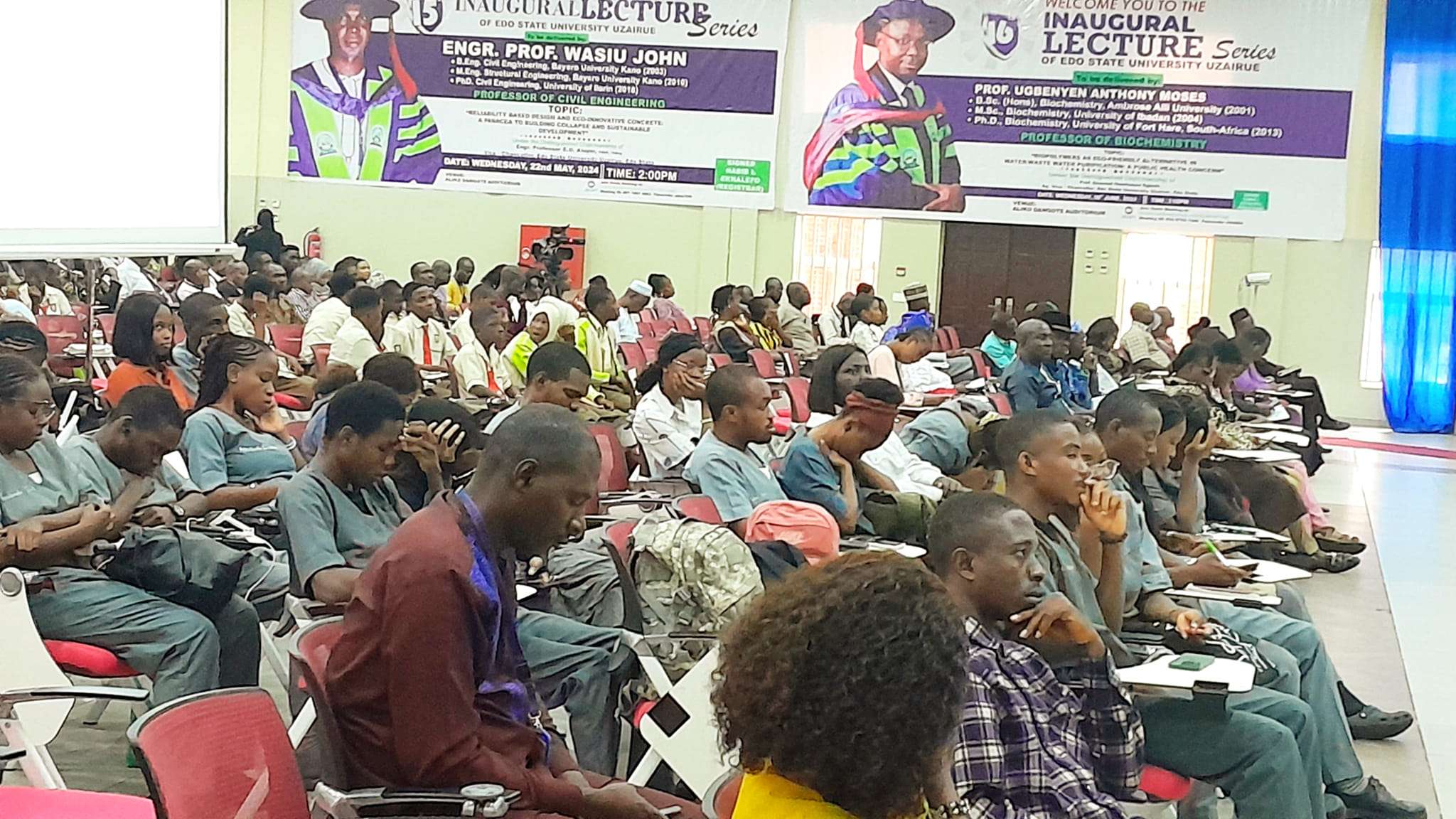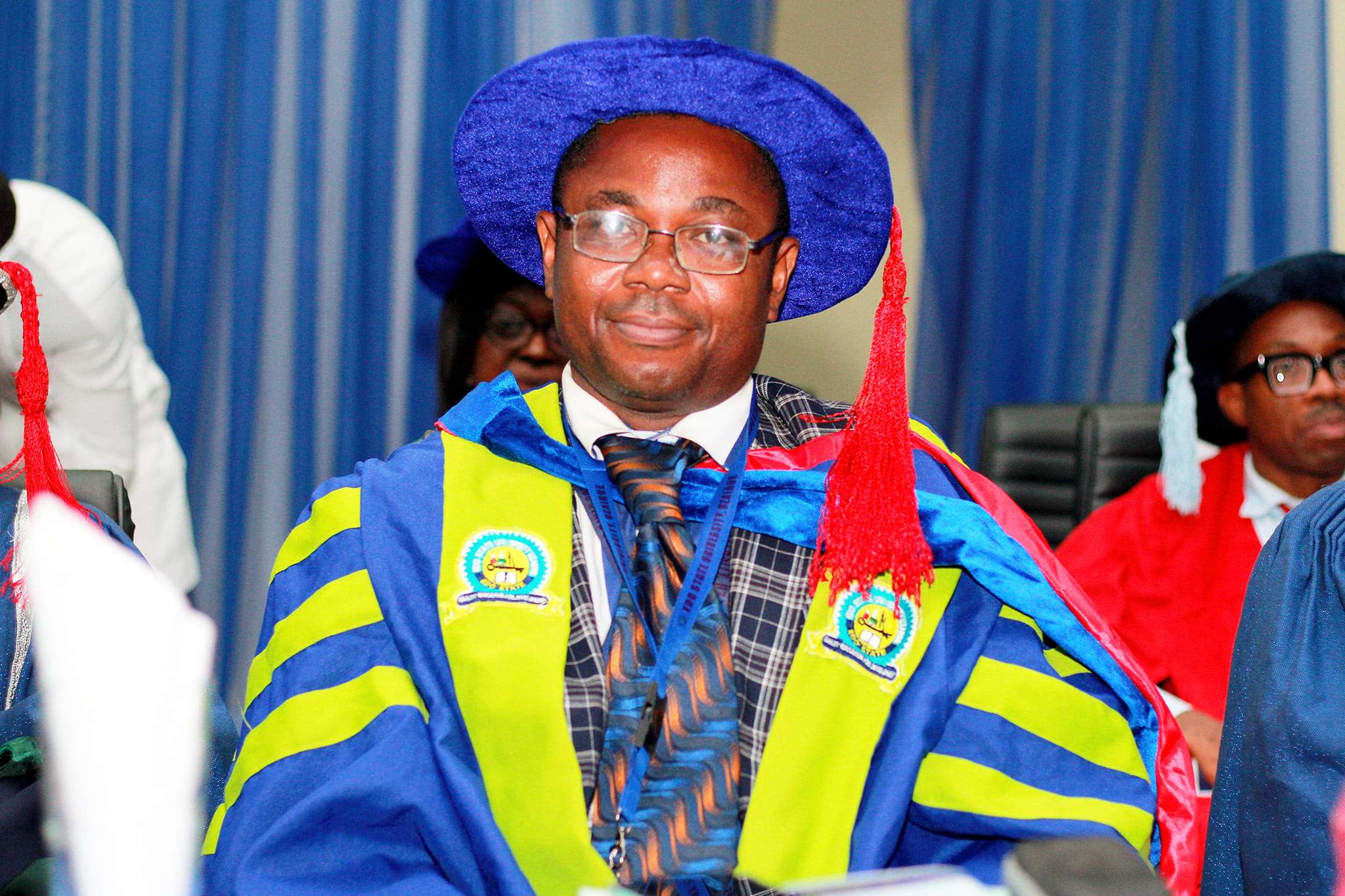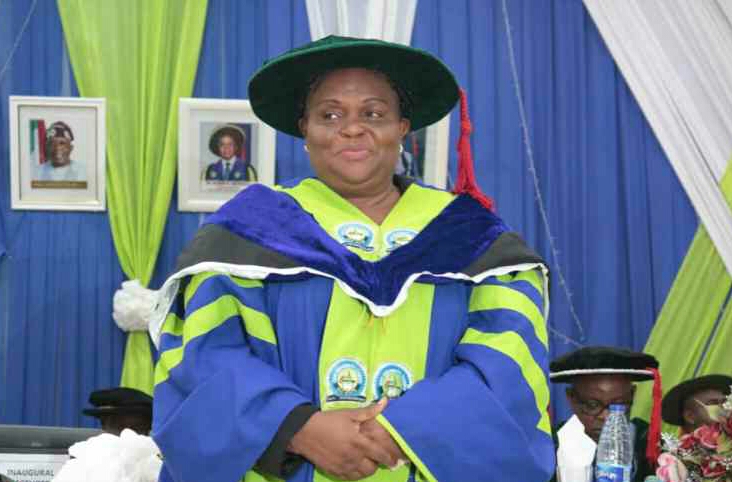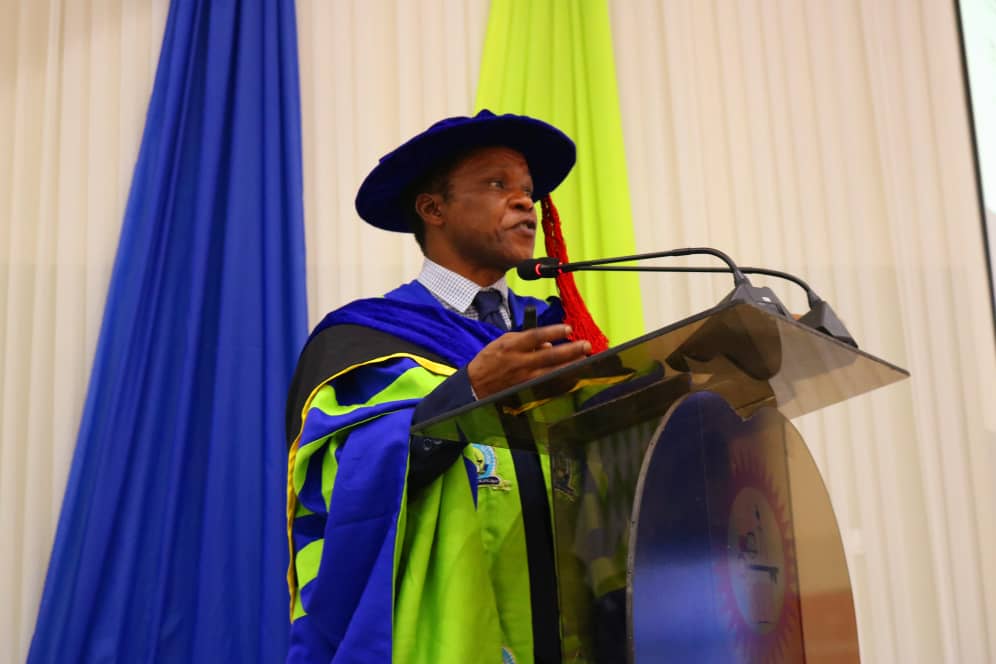Our reporter
Uzairue– Prof. Ugbenyen Anthony Moses of the Biochemistry Department at Edo State University Uzairue has called for comprehensive water treatment and disinfection processes to mitigate the risk of heavy metal toxicities and waterborne diseases.
This recommendation was made during the 16th inaugural lecture series at the Aliko Dangote Auditorium yesterday.
In his lecture titled “Biopolymers As Eco-friendly Alternative In Water/Wastewater Purification: A Public Health Concern,” Prof. Ugbenyen emphasized the critical role of water as a natural resource essential for the survival of living organisms, food production, and economic development.
He highlighted the vulnerability of water sources to various contaminants and pollution, underscoring the necessity of proper treatment before domestic use.
Prof. Ugbenyen urged the state government to establish a monitoring and evaluation body dedicated to regularly assessing natural water sources and curbing excessive anthropogenic activities that lead to water contamination.
He noted that water pollution is a significant environmental and public health issue, with flocculation using chemical and synthetic flocculants being a traditional method of purifying polluted water.
The professor presented a document showcasing advancements in using bioflocculants for water and wastewater purification. He explained that understanding the properties of various biopolymers with high flocculation potential is vital for effective water treatment.

Efficient flocculation is crucial for the successful operation of water and wastewater treatment facilities, as bioflocculation and sedimentation of the floc are necessary before treated water is released into the environment.
Prof. Ugbenyen highlighted the widespread application of bioflocculants in water and wastewater treatment, downstream processing, food and chemical processing, mining and milling operations, and petroleum refineries.
He described bioflocculants as polyesters produced by microorganisms during growth, with their flocculation ability dependent on the specific characteristics of the flocculants.
In his opening address, Acting Vice Chancellor Prof. Dawood Omolumen Egbefo reaffirmed the university’s dedication to fostering academic excellence and aligning with its vision of becoming a center of excellence in quality teaching, research, innovation, and community development. He praised the institution’s commitment to leveraging technology-driven educational resources and the high qualifications and dedication of its staff.
Prof. Egbefo also emphasized the importance of inaugural lectures in maintaining a tradition where senior academic staff share their insights.
He encouraged young professors to take advantage of this opportunity, noting that presenting an inaugural lecture within twelve months of elevation to professorship might soon become a criterion for certain qualifications.








